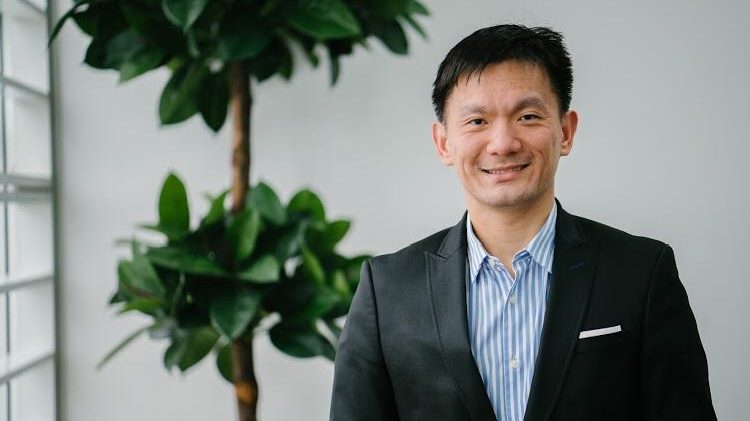
Photo by Ben White on Unsplash
“And this is my prayer: … that you may be able to discern what is best and may be pure and blameless until the day of Christ, filled with the fruit of righteousness that comes through Jesus Christ – to the glory and praise of God.” Philippians 1:9-11
The fellow who gained the world and lost his soul.
Each of us can probably name one or more miserable, or foolish, persons who could fit into this category. The original warning, of course, comes from our Lord Jesus: “What good is it for a man to gain the whole world, yet forfeit his soul?” Mark 8:36
This divine warning comes afresh as our world becomes more and more of a global marketplace, selling a vast array of lifestyles and products. People are being reduced to an addictive consumerism that threatens to rob them of the kind of abundant life that Jesus talked about. John 10:10
In the earlier and simpler days, choices were limited. If you wanted to buy a television in the 1960s when it first appeared in Singapore, the process was straightforward. You would have gone to the neighbourhood shop selling electrical goods and decided which of the three models you wanted. The process of choosing was relatively short.
Today, a similar outing to buy a television may take much longer – there are just too many choices. You would probably ask around, talk to your friends, do your own research, and check online reviews. A savvy consumer may take a week or longer to make his decision. Even more time would be spent when buying a car or computer, or planning a holiday.
What are we really buying?
The danger here is that we may spend much of our lives trying to make choices that may have little or no significance when assessed in the light of eternity. They make no positive contribution to the kingdom of God or the well-being of our souls. Because, at the end of time, does it really matter whether you drove a Mazda or a Toyota, or used a particular credit card?
Then why do we spend so much time making consumer choices?
Do you remember the proverbial student who sits for an exam comprising 10 questions? Instead of answering all the questions, he spends all his time answering the least important question – the one with the least marks, and when the time is up, he realises his folly.
He is no fool who spends most of his time leading with the most important questions and choices in his life. The marketplace can distract us into wasting precious time and opportunity on consumer choices that are ultimately of no consequence.
The danger here is that we may spend much of our lives trying to make choices that may have little or no significance when assessed in the light of eternity. They make no positive contribution to the kingdom of God or the well-being of our souls.
The Bible has a way of reducing all the human-created complexities arising from consumer choices or the sinful meanderings of human thinking and rationalisation. For example, the Psalms, the worship book of ancient Israel, begin with the most important choice in life – whether one chooses to walk in the way of the righteous or the way of the wicked.
Jesus, Himself, showed that – when we cut through all our lengthy discussions and deliberations – at the heart of things, our choice is simple: We either walk on the less-trodden, narrow way, or follow the herd in the crowded, broad way. Matthew 7:13-14
Or put in a different way, you either serve God or money. Matthew 6:24
Such relentless simplification is necessary in a world of increasing choices. Otherwise we will deceive ourselves into thinking that we are doing alright and that our souls are well. A consumer lives in an illusory world of choices when he spends inordinate time in the marketplace; no real choice is made, except that the more he is wasting time on inconsequential choices, the more he is losing his soul.
The disciple, on the other hand, is always facing an “either-or” choice. Either he loves God or he doesn’t. Either he loves his neighbour or he doesn’t. He is like the pilgrim who keeps his eye on the original journey, refusing to be distracted by the many carnivals and sideshows along the way.
A consumerist world of increasing choices leads inevitably to decreasing levels of commitment. This is already evident in many areas of life, from the way one sticks lightly to a brand, to the effects in family and religious life. Increasingly, one does not make a long-term or lifetime commitment to anything, be it job, spouse, citizenship, or church.
When it comes to the ultimate reality of our life – God – there is really no choice, or rather, no real alternative.
Choices that count
The first commandment tells us that when it comes to God, there is no market, and we are not consumers. If there appears to be a market, then what is on offer, other than God, are counterfeits. There is only one good choice, only one real choice; and that is to acknowledge that God is the most important reality in our lives, much more important than our selves, and that there is no real life outside His grace and will.
The marketplace sells the good life, and many are busy surveying the goods and spending much time buying what is on offer. The problem is that the pursuit of the good life does not bring us ultimate blessings.
Often, it is reduced to the consumerist pursuits of our baser instincts, the pursuit of entertainment by bored people, and the seeking of transient happiness by those who have not found joy.
The good life, often, is an obstacle to the best life. To find the best life, we have to give up the trivial pursuit of the good life in the modern marketplace.
We remember the apostle Paul’s prayer: “And this is my prayer: that your love may abound more and more in knowledge and depth of insight, that you may be able to discern what is best and may be pure and blameless until the day of Christ, filled with the fruit of righteousness that comes through Jesus Christ – to the glory and praise of God.” Philippians 1:9-11
In this great prayer, we are reminded of the best life and the most important realities in life. The choices we should be spending time making should focus on these matters.
Let us live wisely, making the best use of what is left of our lifetimes on that which matters ultimately. Because, what is the point of knowing the price of everything when we don’t realise the value of the soul?
This devotional was extracted from the book, Reflections on Time and Eternity, and republished with the permission of Armour Publishing.
Reflection and Discussion
1. Have you stumbled into the pit of consumerism lately? What are your weaknesses as a consumer? Why do these purchases give you satisfaction?
2. Reflect on Matthew 6:24. What does it mean to “serve” money? Why is serving God and serving money mutually exclusive?
3. What does the Bible say is the most important choice in life?
We are an independent, non-profit organisation that relies on the generosity of our readers, such as yourself, to continue serving the kingdom. Every dollar donated goes directly back into our editorial coverage.
Would you consider partnering with us in our kingdom work by supporting us financially, either as a one-off donation, or a recurring pledge?
Support Salt&Light


